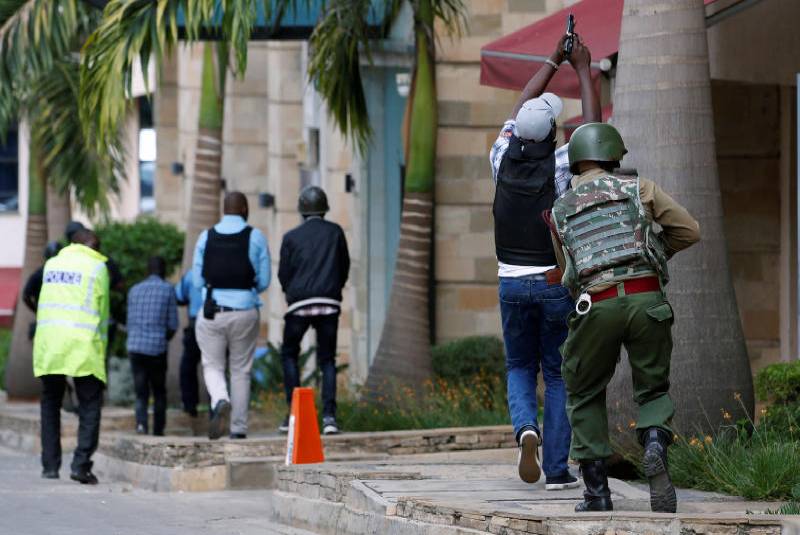×
The Standard e-Paper
Fearless, Trusted News

Members of security forces arrive at the scene of explosions and gunshots, at the dusitD2 Hotel compound, in Nairobi, Kenya January 15, 2019. [Photo: Reuters]
The Somali-based Al Shabaab terror group that claimed responsibility for yesterday’s attack in Nairobi has waged a bloody campaign on Kenyan soil in retaliation for the presence of the country’s troops in the war-torn Horn of Africa nation.